Every time I visit a library (or even a library website) I can’t help but notice the digital workshops they offer, a side effect of being a former ICT librarian who now does innovation workshops for libraries as part of Artefacto. It’s impressive that, despite rounds of funding cuts and other obstacles, most libraries still manage to offer digital literacy services to their communities. Whether in the form of introductory classes, drop-in sessions and, increased privacy and online security awareness events.
Who will be driving the biggest change in the #library’s transformation? See our latest poll results at the end of the page and let us know what you think. Share on XDigital literacy enables people to actively, securely and creatively engage in an increasingly digital world. In the UK, it’s estimated that 12 million adults in Britain lack basic digital skills. And other countries show equally staggering figures.
But the thing about digital literacy is that it’s contextual – what constitutes digital literacy for a parent returning to the workforce is not necessarily the same to that of a retired person or student.
The thing about digital literacy is that it’s contextual - what constitutes digital literacy for a parent returning to the workforce is not necessarily the same to that of a retired person or student. #libraries Share on XThe way we support digital literacy also needs to be contextual. There are currently some amazing opportunities for libraries to build on the support they provide and deliver more engaging and participatory digital literacy services.
Libraries are a trusted part of the community
Libraries play a vital part in helping people become digital citizens because they are accessible and trusted institutions in the community. They provide free access to learning. Lifelong learning and knowledge creation have long formed the core of library services.
Hidden in the depths of the library events calendar, you’ll usually find listings for computer sessions, support for people with new devices, CV building workshops and much more.
But while discussions about the importance of digital skills grow louder, libraries have maintained a consistently understated murmur about their digital literacy work. It continues to sit awkwardly alongside shiny new offerings like makerspaces and repair cafes.
In order to continue to build on the amazing work being done in libraries to improve digital literacy in the community, these two divergent paths need to meet.
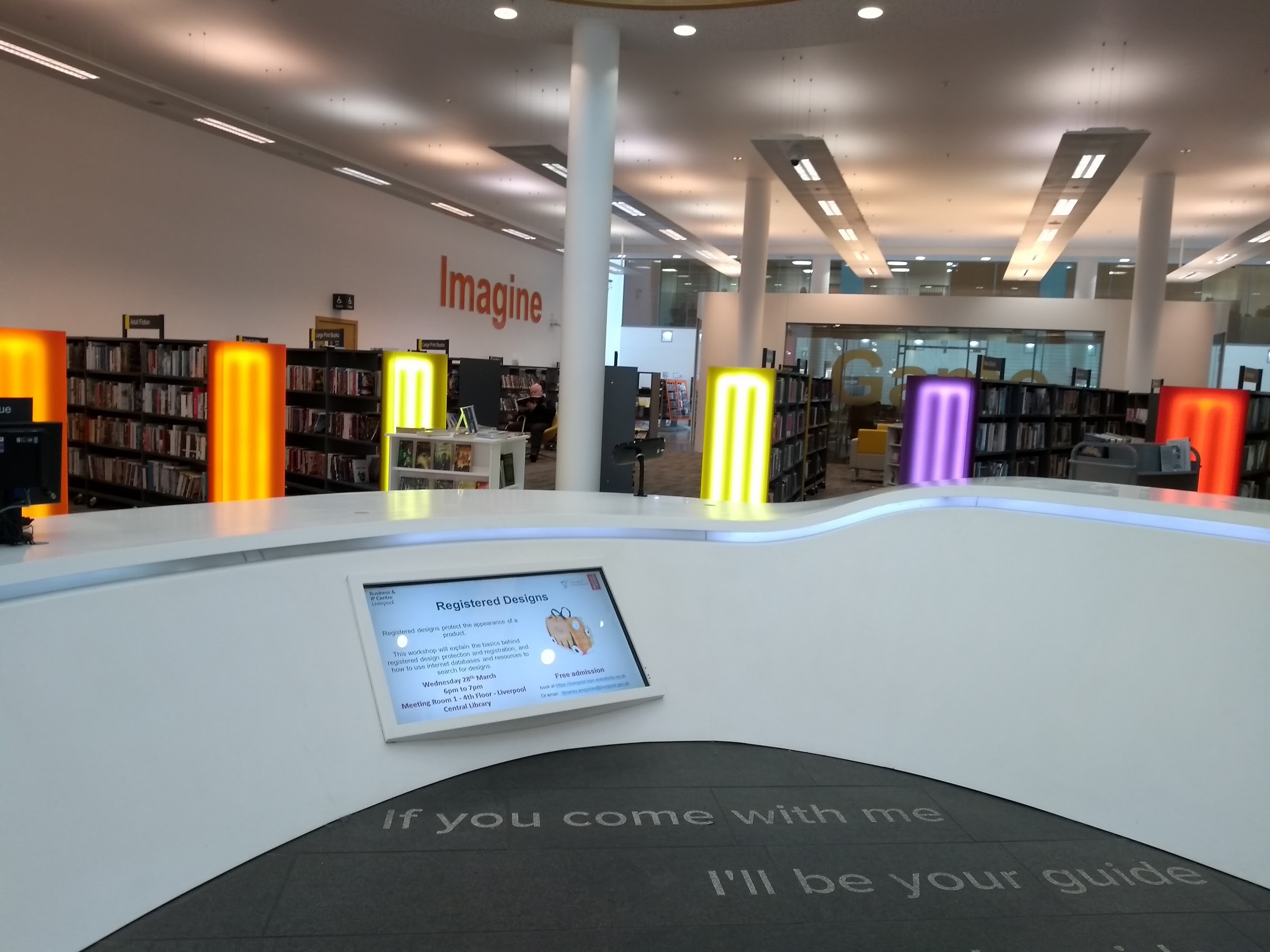
The current state of digital literacy support in libraries
Most public libraries offer some semblance of computer training for beginners. Many also offer drop-in sessions where library members can get individual help with their computers or mobile devices. I don’t know anywhere else where this is available to everyone for free.
There are some new additions, such as libraries offering digital literacy support through borrowed devices (WiFi hotspots, micro:bits). But the majority of digital skills provision is via general, introductory computer workshops. This kind of one-size-fits-all approach can be both intimidating and unappealing for new learners with different learning goals in mind.
But the majority of #digitalskills provision is via general, introductory computer workshops. This kind of one-size-fits-all approach can be both intimidating and unappealing for new learners with different learning goals in mind.… Share on XThere are huge opportunities available to libraries to build on this role as interest in digital literacy continues to grow. But this requires a new kind of approach with less inside voices.
Digital literacy everywhere
As digital technology becomes ubiquitous, digital literacy support needs to be equally ready and available – it can no longer sit alone and isolated in the event calendar.
As digital technology becomes ubiquitous, digital literacy support needs to be equally ready and available - it can no longer sit alone and isolated in the event calendar. #libraries Share on XDigital literacy support happens every time someone interacts with the catalogue, borrows an audiobook, uses library wifi on their phone, visits the library website. It no longer makes sense to separate digital from the non-digital. This presents some exciting new ways to approach digital literacy that enables people to learn new skills in social, collaborative and meaningful ways.
People have their own motivations for wanting to get online or improve their knowledge and skills. Recent research by the Good Things Foundation on the digital behavior of older people found that awareness around privacy and security issues was high, even amongst those who didn’t use the internet. People heard about security breaches and privacy controversies from the media and from their social groups, and this had an impact on how they felt about going online.
Your users may have different reasons, so you should definitely ask them.
Digital literacy doesn’t necessarily have to take the shape of regular, dedicated events but can be a part of existing services and initiatives. #libraries Share on XDigital literacy doesn’t necessarily have to take the shape of regular, dedicated events but can be a part of existing services and initiatives. For example, oral history projects draw on a range of skills including media production and editing, metadata, privacy and web publishing. Similarly, there’s lots of space for digital literacy support within business centers in libraries – not everyone running a small business is confident in their online skills.
There are also plenty of ways to provide just-in-time digital literacy support – you can display daily online privacy and security tips on your browser start page or quick start videos on digital signage.
Digital literacy is about being able to participate. It's no longer possible to view this as separate and unrelated to #information and health literacy, social inclusion and citizenship more broadly. #libraries Share on XThese are just some examples. Digital literacy is about being able to participate. It’s no longer possible to view this as separate and unrelated to information and health literacy, social inclusion and citizenship more broadly.
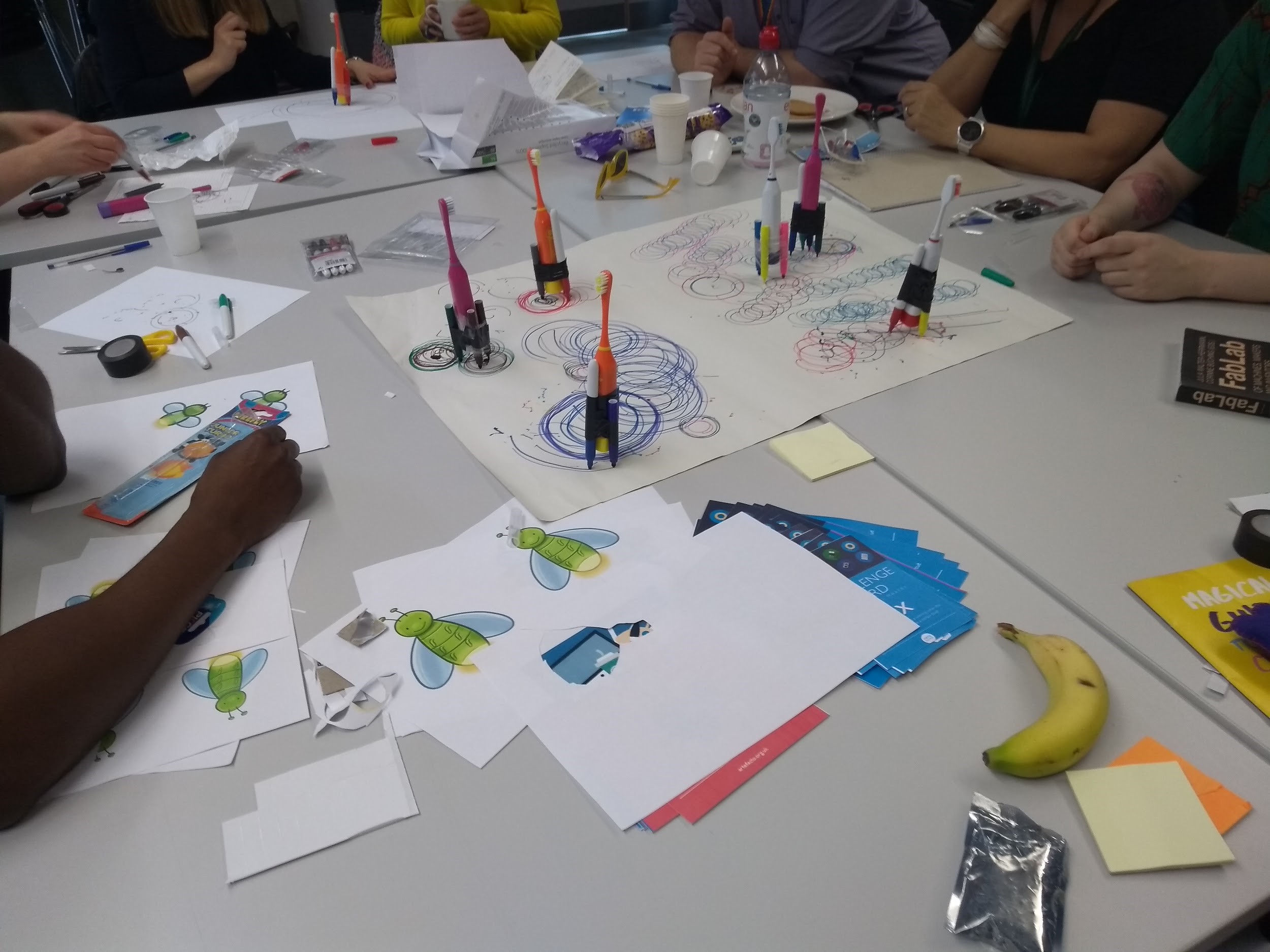
Joining the dots
Alongside the quietly-offered computer classes sits a new stream of digital workshops and events in libraries that have sparked a lot of recent interest.
Makerspaces and maker education have revitalized digital services in many libraries. But this approach has been compartmentalized, despite the pedagogical benefits it can offer. For some reason, these two streams of services have not intertwined – digital literacy support at the library remains instructionist and linear, while makerspaces get to be constructionist and creative.
Digital literacy support at the library remains instructionist and linear, while makerspaces get to be constructionist and creative - for some reason, these two streams of services have not intertwined. Share on XAll learners can be empowered by a more participatory approach and by creating things that are meaningful to them. We’ve seen the evidence of this in workshops we’ve done with staff, adult makers and business owners in libraries across the UK.
Because learning new skills and using new technology can be scary. Embracing a more personalized and participatory approach can help alleviate the fear that makes people reluctant to engage with new and unfamiliar technologies.
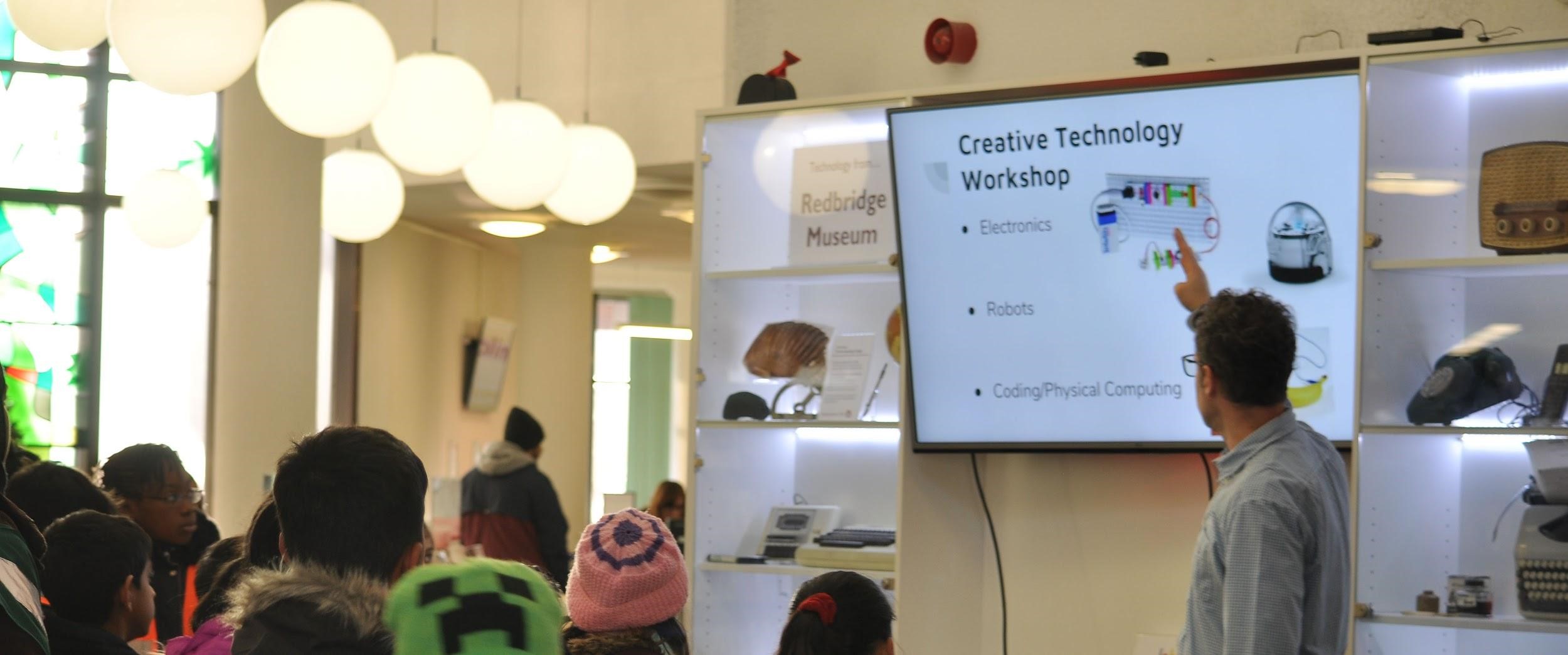
Stand on the shoulders of giants (and shout)
Embedded digital literacy means asking questions about what skills people need and when. There’s plenty of ways you can support people to improve their digital literacy outside of standardized classes, including with just-in-time and active learning.
There’s plenty of ways you can support people to improve their digital literacy outside of standardized classes, including with just-in-time and active learning. #libraries Share on XThis can seem a lot to ask, particularly in times of reduced funding and other challenges that libraries face today. But the main requirement to a unified, pervasive and playful approach to digital literacy is a spirit of experimentation and collaboration – talk to users, talk to other organizations in the community and talk to other library staff. There’s plenty of existing resources and experience out there to draw on and be inspired by.
Sharing what you’re doing and why can be a great way to start these conversations. Set small, measurable goals that you can start working towards and don’t be afraid to shout about the work you’re doing, what you’ve learned and what you’ve got planned next.
Want more insights from libraries across the world ? Stay tuned for our weekly posts and read the latest developments in libraries from around the world. Find us on Facebook and Twitter and sign up to our blog to receive new library insights directly to your e-mail.
Poll results: Users will be driving the biggest change in the library’s transformation
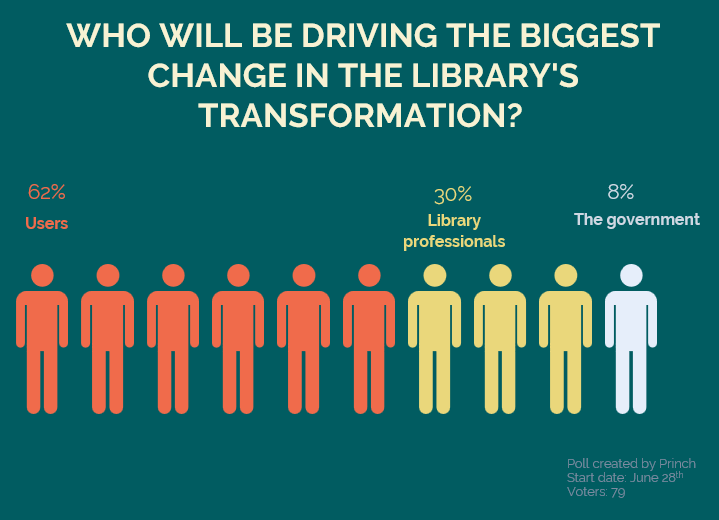
Two weeks ago week we asked you here to pick who will be driving the biggest change in the library’s transformation. Was it the users, the library professionals or the government?
The poll results revealed that more than half of the respondents believe that users will have the biggest impact in the library’s transformation.
AUTHOR DETAILS

Kate Lomax
Co-founder, Artefacto
Artefacto is a creative technology company based in London that specializes in new kinds of workshops, software and user experience for libraries, museums, archives and galleries. Get in touch via artefacto.org.uk or connect with us on Twitter @artefactors
Recent posts
Enhancing User Experience For Libraries In The Digital Age
In this week's Princh Library Blog post, recurring guest writer Sam L. Bowman covers how your library can improve the user experience on [...]
Library Password Practices—Balancing Accessibility and Security
In this week's Princh Library Blog, recurring guest writer Nina Grant discusses a basic, but nevertheless crucial digital security principle: secure password [...]



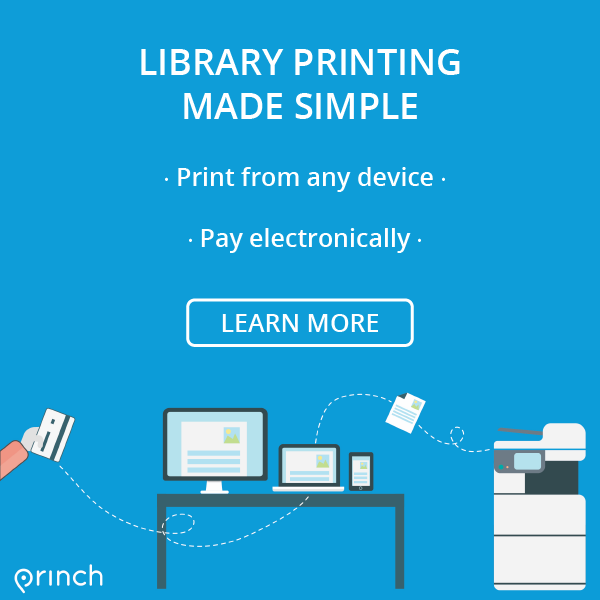
[…] Digital literacy in libraries: joining the dots – Insights from Kate Lomax […]